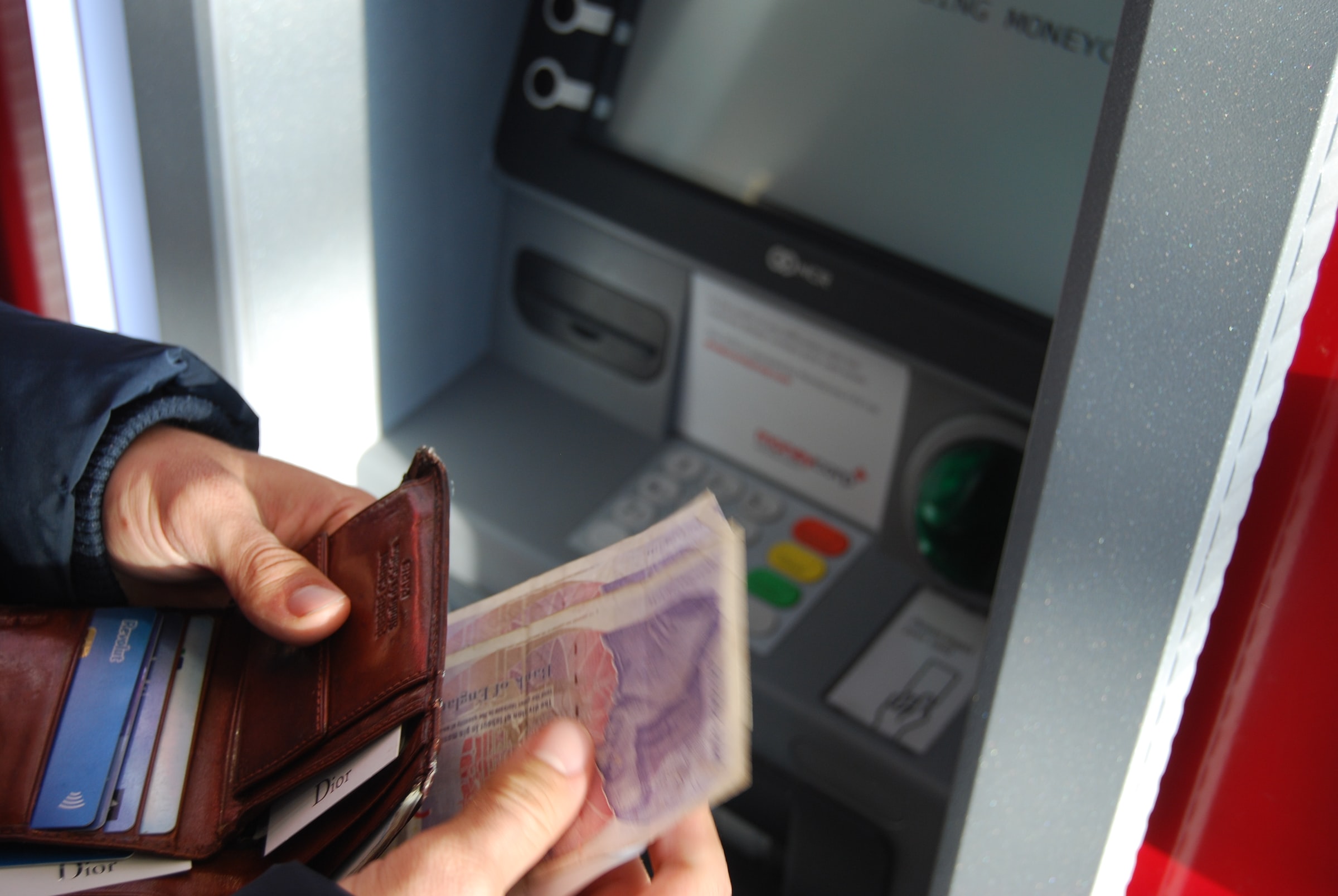What's Included?
What is identity theft?
To report identity theft can be a painful task, especially when you are unsure of what exactly has been taken. ID theft occurs when an individual steals your private information, including financial and personal details, like your home address, email addresses, or passwords. Unlike traditional heists, identity theft does not involve the theft of anything “physical”.
Nonetheless, identity thieves execute their crime by illicitly obtaining and misusing your personal information for their own ends. Identity fraud usually follows identity theft, wherein scammers use stolen data to conduct fraudulent activities. Always remain vigilant and protect your personal information from unauthorized access!
What are the signs of identity theft?
Are you worried about falling prey to identity theft? Look out for certain signs and secure your financial welfare. Here’s what to watch out for:
1. Strange withdrawals from your accounts
2. Lack of bank communication in the form of bills or mail
3. Red flags popping up when making transactions
4. Debt collection calls and notifications
5. Unknown accounts take up space in your credit history
6. Delivery of unrequested items
Be vigilant and check your financial statements regularly. If anything seems amiss, don’t hesitate to act immediately! Your financial safety should never be compromised.
- ⭐ Credit report: Credit fraud protection alerts.
- ⭐ Email address: Data breach detection alerts.
- ⭐ All added to our clever Credit Builder.
See the threats… Fix the problems… Keep your identity safe… with Credibble.
START FREE TRIALHow to report identity theft (How To Report Identity Theft UK)
If you believe you’ve fallen prey to identity theft; you will almost certainly need to know ‘what to do if you are a victim of fraud’. You may feel overwhelmed by the task of reclaiming your financial life. Nevertheless, taking action without delay is crucial to get things back on track. Here are some recommended steps you can take:
- Alert your bank immediately, and cancel all cards affected. If you receive any fraudulently opened bills/statements, it’s wise to inform the lender directly, so they can begin their investigation and you can check your credit report simultaneously.
- Report the incident to Action Fraud, and if you’re concerned your post has been tampered with, report the incident to the Royal Mail.
- Royal Mail fraud reporting: if you suspect mail theft or unauthorised mail redirection. Contact them on 0800 0113466 (message service only).
- Report any identity fraud to the relevant organisation, even if it’s not financial.
- Obtain a copy of your credit report and scrutinise it closely for any oddities or suspicious activity.
- Consider adding a Notice of Correction password to your credit report. This is a good step if you’ve recently fallen victim to ID fraud or had important identification documents stolen during a burglary or robbery. Also, report a theft to the Police for stolen physical belongings!
Remember, being the victim of identity theft can be distressing, but taking these steps will help you regain control over your finances and minimise harm.
What can thieves do with stolen information from identity theft?
Fraudsters can manipulate identities to cause financial havoc. Here are some of the ways they do it:
- Bank accounts can be opened, and credit cards, loans, and benefits can be applied for.
- Mobile phone contracts can be established.
- They can purchase goods in your name.
- Vital documents registered to you, such as (but not confined to) your passport, birth certificate, and driver’s license, can be obtained.
- They can even lock you out of your existing accounts.
So it’s important to stay informed and report Identity theft if you’re a victim!
Identity theft and your credit score
Identity theft can be a nightmare for your credit score. It’s essential to act quickly if you suspect fraudulent behaviour – it can warp your credit report, that all-important ‘online version’ of you that companies use to judge your financial responsibility. Your score can plummet quickly, making it appear you can’t manage your money. But don’t panic: you can turn the tide with prompt reporting. In most situations, damage to your credit score is reversible if you report any suspicious activity immediately. So stay vigilant, stay informed, and keep those scores where they belong – at their best.
How to prevent identity theft
Reporting identity fraud is a daunting task; here are the top tips that to help prevent your identity from being stolen in the first place:
- Firstly, ensure you shred any documents with private information before you dispose of them. Better safe than sorry, right?
- Also, never give out personal information over the phone. Your bank will never call you to request personal details such as your card numbers or expiry dates, so don’t fall for it and simply end the call.
- Be cautious if an unknown person contacts you via cold email or call. There are certain scams to be aware of, such as phishing, where fraudsters try to get you to give them personal information. If you’re concerned, it’s best to cut the call and call back later.
- Now, let’s talk about social media. It’s always best to keep your accounts to a minimum and ensure high privacy settings. While we love sharing information on social media, we need to be careful about posting personal details such as pets’ names, address details or even details that might reveal when you’re on holiday.
- Here’s a handy tip: never write down your passwords and keep them in your bag, organiser, or even your phone’s notes section. Instead, create complex and unique passwords for all your accounts. Trust me; it’s worth the extra effort!
- Destroying or shredding unwanted mail can also help prevent fraudsters from getting their hands on your personal details. That’s right, always keep your mail secure!
- Make sure your home WiFi is also secure and not easily guessable. If you use public WiFi hotspots, never sign in to personal accounts, such as online banking services or email.
- Lastly, you can contact CIFAS for a paid Protection Service if you want extra protection.
If data security worries you, the Credibble Credit Report and Score offers a solution that includes Dual ID Fraud Monitoring for no cost during your first month and just £9.95 monthly thereafter. With the included threat detection on your credit report and email, you can rest assured that your personal data is in safe hands.
Frequently Asked Questions
How should you report the theft of your identity?
You should report the theft of your identity to your bank, credit card company and the local police on the non-emergency phone number, 101, as soon as possible. You can also report the crime to Action Fraud, the police’s fraud-reporting service1.
Where do I report identity theft UK?
You can report identity theft UK to Action Fraud, the police’s fraud-reporting service, by calling 0300 123 2040 or visiting their website². You can also contact CIFAS, the UK’s fraud prevention service, to place a protective registration on your credit file2.
How can I stop someone using my identity?
You can stop someone using your identity by taking steps to protect your personal and financial information, such as: shredding documents that contain your details, using strong passwords and antivirus software on your devices, checking your credit reports regularly for any suspicious activity, opting out of the edited electoral register and marketing mail lists, and being wary of unsolicited calls, emails or texts asking for your details3.
Do I call local police for an identity theft?
You can call the local police on the non-emergency phone number to report an identity theft. However, you should also contact Action Fraud, the police’s fraud-reporting service (see below).
How do I report identity theft to the police UK?
You can report identity theft to the police UK by contacting Action Fraud, the police’s fraud-reporting service, by calling 0300 123 2040 or visiting their website². To report theft, you can also call the local police on the non-emergency phone number 101 to report a theft of property³.
How do you check if your identity has been stolen?
You can check if your identity has been stolen by monitoring your bank accounts and credit reports regularly for any unusual transactions or applications. You can also look out for any signs of identity theft, such as: receiving bills or invoices for things you haven’t ordered, getting letters from debt collectors for debts that aren’t yours, being refused credit or benefits for no apparent reason, or finding out that someone has opened accounts or taken out loans in your name2,6.
What are the first signs of identy theft?
The first signs of identity theft may include: receiving bills or invoices for things you haven’t ordered, getting letters from debt collectors for debts that aren’t yours, being refused credit or benefits for no apparent reason, or finding out that someone has opened accounts or taken out loans in your name. You may also notice some changes in your credit reports or scores2,6.
What to do after identity theft UK?
Report the crime to your bank, credit card company and Action Fraud as soon as possible; contact CIFAS to place a protective registration on your credit file; check your credit reports and bank statements regularly for any further fraudulent activity; contact any other organisations that may be affected by the fraud, such as HMRC, DVLA or your utility providers; and keep a record of all your communications and evidence relating to the fraud4,5.
How does post office fraud reporting work?
So, how does post office fraud reporting work? Simple. Contact Royal Mail if you’re worried someone’s tampered with your mail:
- Call Royal Mail 03454 04 05 06
- Write to Citizens Advice consumer service, 2nd Floor, Fairfax House, Merrion Street, Leeds, LS2 8JU
- or complete their online form
There isn’t specific royal mail scam protection, so any irregularities in your deliveries should be reported.
Is there a special ‘identity theft police report’?
There is no special ‘identity theft police report’ in the UK. However, you can report identity theft to Action Fraud, the UK’s national fraud and cybercrime reporting centre:
- Action Fraud contact number: 0300 123 2040.
Is there an Action Fraud London?
No. If you are reporting identity theft or trying to report identity fraud, there is one national number.
What is credit fraud protection?
In the United Kingdom, credit fraud protection encompasses various services, tools, and laws designed to safeguard consumers’ credit scores from financial fraud, identity theft, and changes in their ability to pay off debts.
What is royal mail redirection after death?
In the UK, if you’re seeking to redirect mail for a deceased individual or someone you have legal authority, such as power of attorney or deputyship, you can apply to Royal Mail for redirection of their mail to your address for up to four years. To obtain the special circumstances redirection form, simply download it from the Royal Mail website. However, it’s important to note that this form must be completed by hand and presented in person to a Post Office. Additionally, registering with the Mailing Preference Service can reduce the direct-marketing mail sent in the individual’s name or on their behalf.
References:
- What is identity theft? – Which?. https://www.which.co.uk/consumer-rights/advice/what-is-identity-theft-a7wcQ6c0RyI1.
- Identity fraud and identity theft | Action Fraud. https://www.actionfraud.police.uk/a-z-of-fraud/identity-fraud-and-identity-theft.
- BBC One – Watchdog – Identity Fraud. https://www.bbc.co.uk/programmes/articles/Pmw0JZLRc3T2NGT8nv78JJ/identity-fraud.
- Identity fraud | Police.uk. https://www.police.uk/advice/advice-and-information/fa/fraud/personal-fraud/identity-fraud/.
- Identity theft | Crimestoppers. https://crimestoppers-uk.org/keeping-safe/personal-safety/identity-theft.
- How to report identity theft | Equifax UK. https://www.equifax.co.uk/resources/identity-protection/reporting-identity-theft.html.






